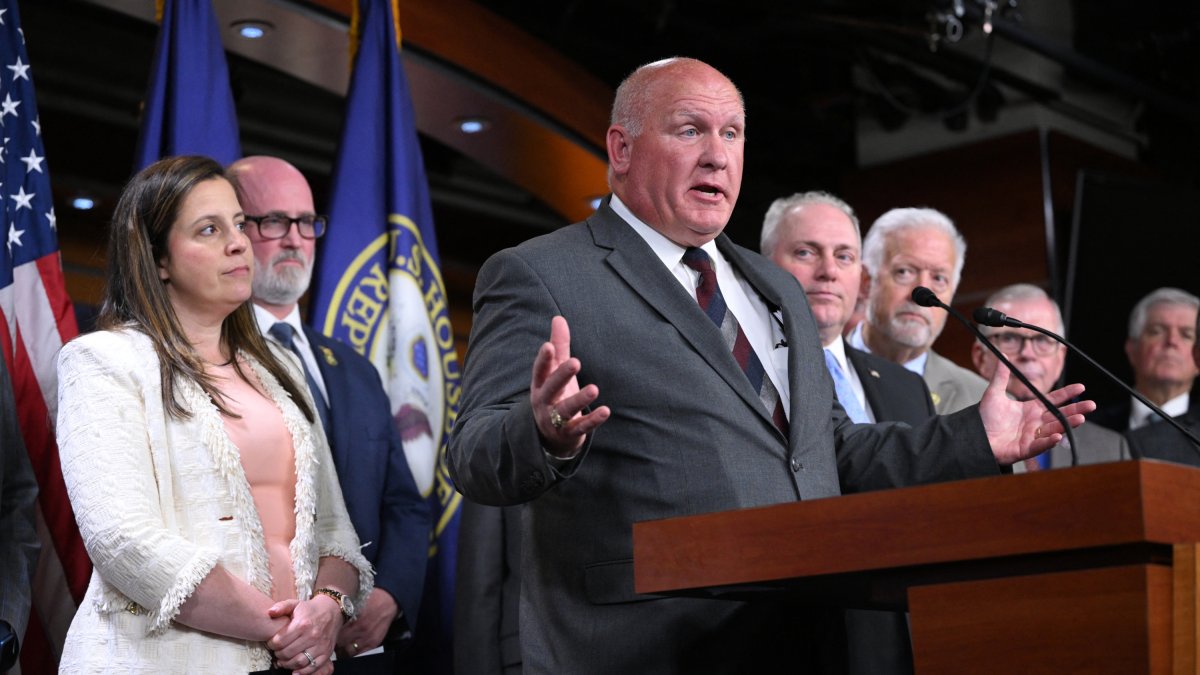As part of Trump's mega-bill, House Republicans unveiled their reform of the SNAP food assistance program
The Agriculture Committee bill aims to eliminate waste and create incentives to increase accountability.

Thompson on Captol Hill/Mandel Ngan
The House Agriculture Committee released its legislation to reform the Supplemental Nutrition Assistance Program (SNAP), commonly known as food stamps, the nation's largest food assistance program. The Republican proposal is centrally aimed at rooting out waste and creating incentives to increase accountability in the program.
Glenn Thompson, chairman of the Agriculture Committee, welcomed the bill, asserting that the intent is to end "executive and state overreach" in the administration of SNAP.
"For far too long, the SNAP program has drifted from a bridge to support American households in need to a permanent destination riddled with bureaucratic inefficiencies, misplaced incentives, and limited accountability," the Pennsylvania Republican said in a statement.
Like other reforms, such as tax reform, this legislation will be part of the mega-bill pushed by President Donald Trump.
"This portion of the One Big, Beautiful Bill restores the program’s original intent, offering a temporary helping hand while encouraging work, cracking down on loopholes exploited by states, and protecting taxpayer dollars while supporting the hardworking men and women of American agriculture," Thompson added.
What is SNAP and how does it work?
The Department of Agriculture (USDA), currently headed by Brooke Rollins, administers the program through the Food and Nutrition Service (FNS).
The government delivers the money on an electronic card, EBT, which can only be used to purchase food at supermarkets, other markets and authorized businesses. The amount each household receives depends on variables such as income and number of members.
While all of the money invested in the program comes from the federal government, it is administered locally by the states. The states process applications, distribute the cards and determine applicants' eligibility, among other things.
Republican proposal to reform SNAP
Specifically, and among other things, the bill would do the following:
- Require states to bear a portion of the program's costs, thereby incentivizing them to administer SNAP in a more "efficient and effective" manner.
- Prevent future administrations from unilaterally increasing SNAP benefits above inflation, which would correct "the Biden Administration's illegal overreach."
- Increase the age limit from 54 to 64 and limit exemptions for caregivers of children under age 7. Currently, individuals between the ages of 18 and 54 who are able to work and have no dependents (children) are subject to the "time limit" to receive SNAP benefits, which requires them to work 80 hours per month or participate in skilled work programs for more than 3 months in a 3-year period.
">Our portion of the One Big, Beautiful Bill ensures SNAP works as Congress intended, by reinforcing work, rooting out waste, and instituting long-overdue accountability incentives to control costs and end executive and state overreach.
— House Committee on Agriculture (@HouseAgGOP) May 13, 2025
Learn more⬇️ pic.twitter.com/Gpxbjn13eV
- End "the manipulation of geographic areas by states and limits eligibility for exemptions from the work requirement to periods of high unemployment."
- Prevent states from "intentionally manipulating the system with nominal energy payments to households to artificially increase SNAP benefits."
- Reversing a Biden administration rule "inflated" SNAP benefits through excessive utility deductions.
- Restricting SNAP for illegal aliens.
- Eliminate the duplicative SNAP Nutrition Education Program (SNAP-Ed), described as "duplicative and ineffective."



























